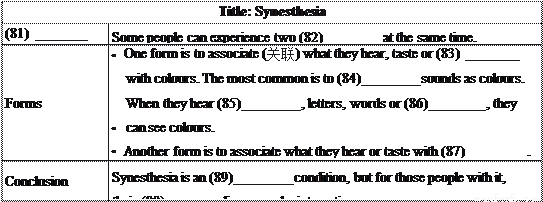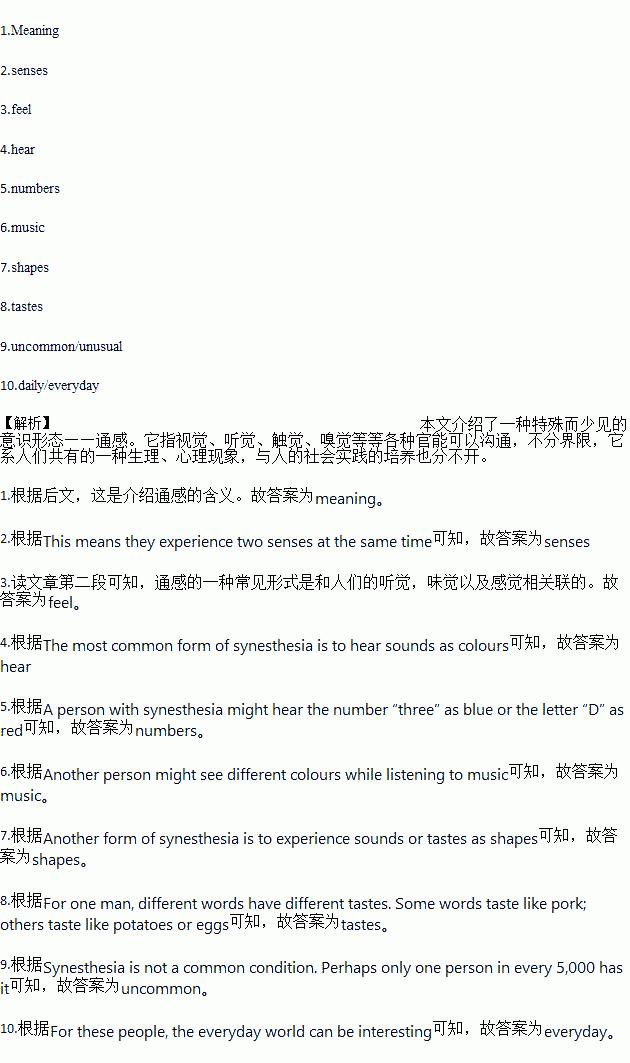题目内容
阅读下面的短文,根据文中信息完成文后表格。(每空一词)
What colour is your name? What colour is Wednesday? These questions might sound strange to most people, but some can answer right away. One person says her name is the colour red. For another person, Wednesday is blue. These people have a condition called synesthesia (通感). This means they experience two senses at the same time. For these people, the senses
of smell, sound, sight, touch, and taste are not separate (分开的). They might see and also hear
colours, for example, or hear as well as feel sounds.
The most common form of synesthesia is to hear sounds as colours. A person with synesthesia might hear the number “three” as blue or the letter “D” as red. Someone might always see green upon hearing the word “April”. Another person might see different colours while listening to music. Some people also taste colours. To one person, beef might taste blue and to another, yellow. Some people experience feelings in colour. For example, one person with synesthesia reports feeling pain as the colour orange.
Another form of synesthesia is to experience sounds or tastes as shapes. Some people see music as squares and circles (圆形). Some people taste a sweet as a smooth ball.
There are other forms of synesthesia, as well. For one man, different words have different tastes. Some words taste like pork; others taste like potatoes or eggs.
Synesthesia is not a common condition. Perhaps only one person in every 5,000 has it. For these people, the everyday world can be interesting.

1.________________________________________
2.________________________________________
3.________________________________________
4.________________________________________
5.________________________________________
6.________________________________________
7.________________________________________
8.________________________________________
9.________________________________________
10.________________________________________

